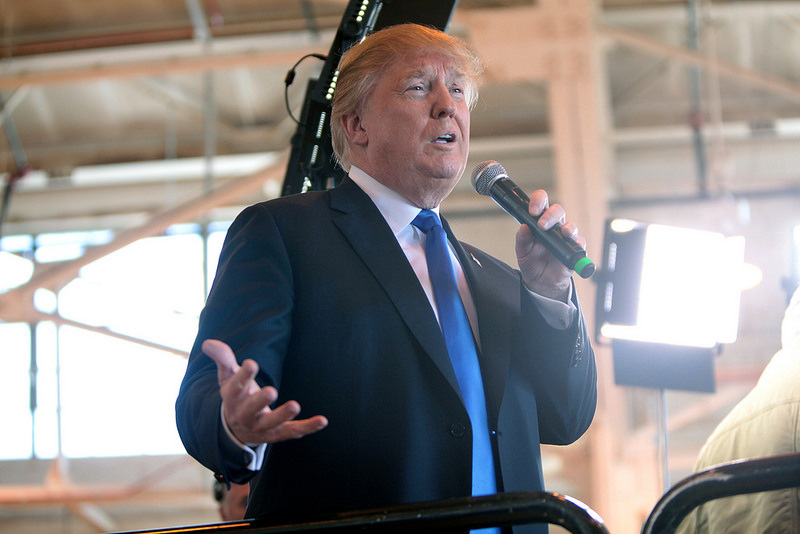| Politics always has been rough. It’s a safe bet Thomas Jefferson would feel right at home in today’s Twitterized climate, although his opponents’ claims in 1800 that “Murder, robbery, rape, adultery, and incest will be openly taught and practiced, the air will be rent with the cries of the distressed …” if he were elected might not fit the 140 character limit. He won two terms, but I’m guessing today Jefferson might have had a harder time dealing with that kind of negativity — unless he had people like Diamond and Silk behind him. |
| | For the uninformed (and that included me until recently), Diamond and Silk are two energetic, opinionated ladies who create YouTube videos supporting Donald Trump. In one recent video, they railed on an MSNBC reporter who wanted to interview them and ask questions they thought were too personal. “If you don’t want us to stump for the Trump on your show, we will stump for the Trump right here,” they said. They also threw out zingers, such as, “How is it that they can allow Brian lyin’ Williams back on MSNBC… ?” Their rants are entertaining and unmistakably angry. And the thing is, with their videos regularly gaining more than 100,000 views, you can’t help but appreciate their power. Who needs a cable news show when you can pull in serious viewership on your own? Trump now uses them as a warm-up act at some of his rallies. During his State of the Union speech Tuesday night, President Obama said one of his regrets is “that the rancor and suspicion between the parties has gotten worse instead of better,” during his two terms. This is demonstrably true. A survey by the Pew Research Center in 2014 found that Republicans and Democrats are more ideologically divided today than 20 years ago. Republicans are more consistently conservative and Democrats are more liberal. At the same time, each side is more likely today to think ill of the other. The survey found 27 percent of Democrats felt Republicans were a “threat to the nation’s well-being, while 36 percent of Republicans felt the same about Democrats. But this isn’t true for the majority of the rest of Americans. A Gallup poll taken that same year found a growing percentage of Americans — 43 percent when the poll was taken — identifying as independents, which likely means they are fed up with the party power structures that produce the types of candidates we have seen for generations — politicians with political pedigrees. So the parties are becoming more polarized, the rest of America is becoming less partisan, and plenty of anger is left over to spread around; All which helps explain Trump and, on the other side of the aisle, Bernie Sanders. Both candidates illustrate how the digital age is disrupting politics the way it has disrupted a host of other institutions, from the media to education. You would be hard-pressed to find a newspaper writer who doesn’t understand how the Internet has changed the way information is reported. Eyewitnesses often bypass the middlemen who run traditional news companies and report fast-breaking events directly to the public through social media. And Trump and Sanders seem to be bypassing the middlemen who run their own political parties. Sanders may not be able to overcome the traditional power apparatus surrounding Hillary Clinton, but a wide-open Republican field seems helpless when confronting Trump. Despite all the big money going to other candidates, Trump’s self-funded machine is relentless. In a Time Magazine piece provocatively titled, “How Trump Won,” writer David Von Drehle said, “What Flubber was to physics, Trump is to politics: an antidote to gravity, cooked up by a quirky but prodigious amateur.” And it’s fueled by anger — at immigration, party elites, the economy and other things. Sanders, meanwhile, feeds off anger at Wall Street billionaires. Against this, the president’s call to “fix our politics” seems a bit naïve. Political parties have served the nation well by moderating extremes and crafting agendas that capture majority support. It isn’t clear they have power to do so any longer. With the fate of the leadership of the free world at stake, trepidation is not an irrational emotion. |


 RSS Feed
RSS Feed

